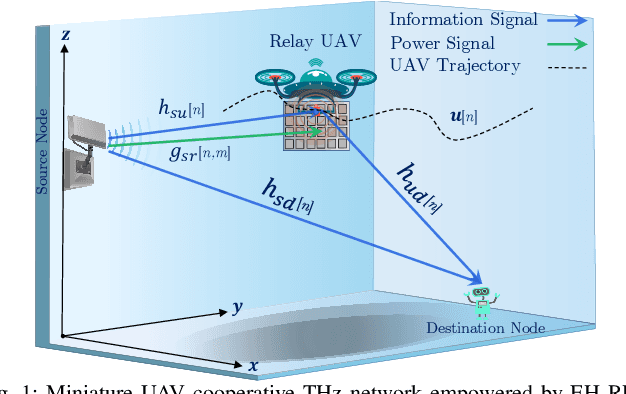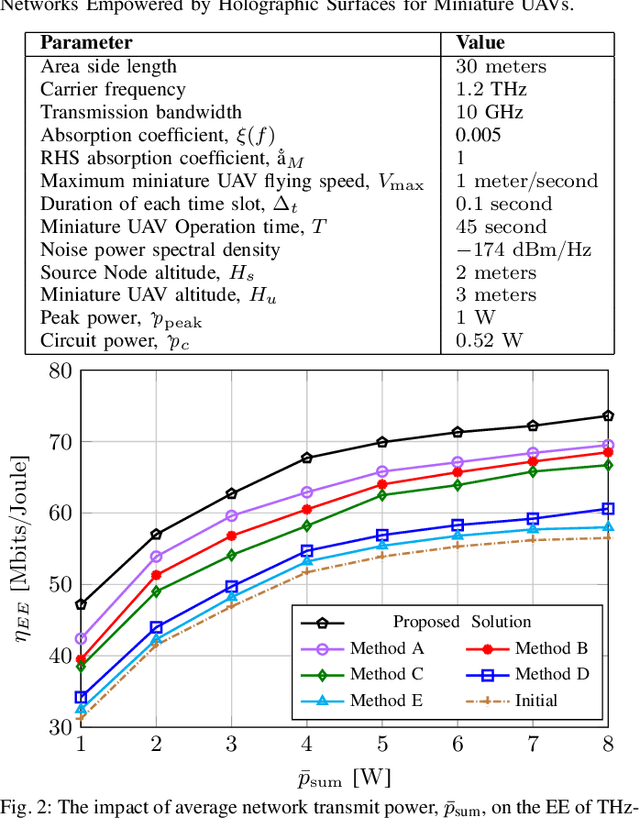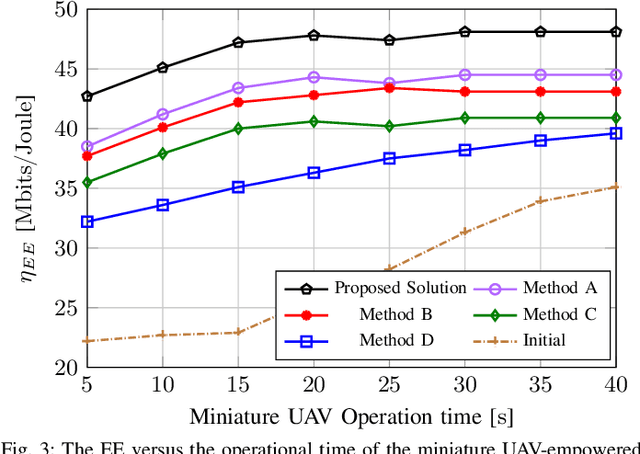Miniature UAV Empowered Reconfigurable Energy Harvesting Holographic Surfaces in THz Cooperative Networks
Paper and Code
Nov 27, 2024


This paper focuses on enhancing the energy efficiency (EE) of a cooperative network featuring a `miniature' unmanned aerial vehicle (UAV) that operates at terahertz (THz) frequencies, utilizing holographic surfaces to improve the network's performance. Unlike traditional reconfigurable intelligent surfaces (RIS) that are typically used as passive relays to adjust signal reflections, this work introduces a novel concept: Energy harvesting (EH) using reconfigurable holographic surfaces (RHS) mounted on the miniature UAV. In this system, a source node facilitates the simultaneous reception of information and energy signals by the UAV, with the harvested energy from the RHS being used by the UAV to transmit data to a specific destination. The EE optimization involves adjusting non-orthogonal multiple access (NOMA) power coefficients and the UAV's flight path, considering the peculiarities of the THz channel. The optimization problem is solved in two steps. Initially, the trajectory is refined using a successive convex approximation (SCA) method, followed by the adjustment of NOMA power coefficients through a quadratic transform technique. The effectiveness of the proposed algorithm is demonstrated through simulations, showing superior results when compared to baseline methods.
 Add to Chrome
Add to Chrome Add to Firefox
Add to Firefox Add to Edge
Add to Edge